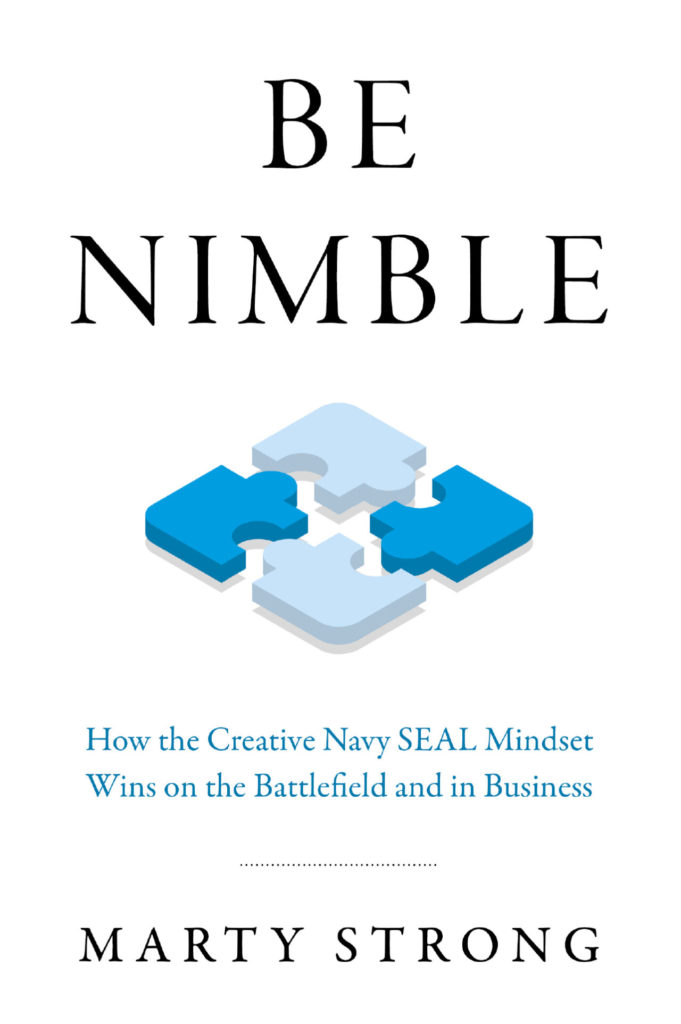
Being nimble: What Navy SEAL training can teach us about building better business minds
Posted On July 22, 2022
The Navy SEALs are an elite fighting force, and it’s not by accident. They are trained to deal with anything, particularly the unexpected.
Perhaps that’s why I’ve found that many of them have gone on to succeed in business. Whether it’s that the SEALs draw tough-minded people or it makes them tough-minded, former SEALs tend to be adept and thinking through complex problems in the business world as civilians.
So it is with Marty Strong, our guest in a recent “What’s Working with Cam Marston” replay. Strong spent 20 years as a SEAL and then went on to make a name for himself in the financial industry and becoming a sought-after speaker, consultant and author. He describes how his military training helped him in the business world in his book: Be Nimble: How the Creative Navy SEAL Mindset Wins on the Battlefield and in Business.
 The first thing to understand is that not everyone can be a Navy SEAL, no matter how fit or gung ho you believe yourself to be. Strong entered SEAL training with 125 other candidates and was one of only 13 who made it all the way through.
The first thing to understand is that not everyone can be a Navy SEAL, no matter how fit or gung ho you believe yourself to be. Strong entered SEAL training with 125 other candidates and was one of only 13 who made it all the way through.
Those who made it through are self-motivated and can handle stress. The training, much of which is scenario training, hones those character traits, Strong says.
“It’s like a coach who finds somebody who’s got all the physical characteristics of a great sprinter but doesn’t know how to run really well,” he said, “and then teaches them to be extremely efficient and economical in the way they run to optimize their performance.”
What SEAL training did not teach him, however, is how to sell. Strong had to learn that on his own, with the help of mentors, when he joined the business world. But even here, the practice of being thrown into unfamiliar situations in his SEAL training was a benefit.
Strong lays all this out in his book, which you can find at martystrongbenimble.com. Included are his steps to personal realignment:
- Achieve intellectual humility
- Achieve intellectual curiosity
- Achieve intellectual creativity
“If you put these three together,” he said, “by definition you are a nimble leader.”
The first step, achieving intellectual humility, requires looking past both accolades that blind us to the work that needs to be done and the negative experiences that can inhibit us from getting started. And while some contend that humility can’t be taught, Strong disagrees.
But much like in SEAL training, leaders have to be willing to allow failure to happen. “If you put somebody in the woods for three days, with hardly enough food and water,” he said, “they’re going to come out really humble.”
Strong also shares his thoughts on the future of the workplace, his favorite interview question, and why deteriorating job performance is more often a result of a change in expectations or job description than a change in the employee.
You can find Strong’s book on his website, martystrongbenimble.com, and you can also pre-order his next book: Be Visionary: Strategic leadership in the age of optimization.